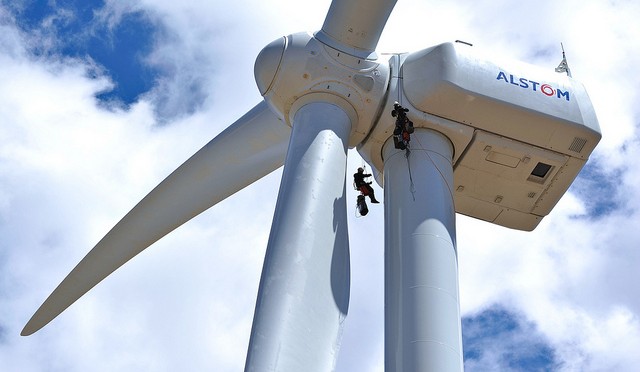It’s curious Health Canada has taken an interest in studying the health impacts of something as benign as wind turbines when for years health and environment experts have been cautioning about the negative impacts of fossil fuels on human health.
Medical authorities in Canada and around the globe have given wind energy a clean bill of health, making Health Canada’s proposed study superfluous — a waste of time and a waste of public funds. The medical community is confident wind turbines are safe and they produce no toxic emissions and no radioactive waste.
When you harness the wind to create electricity, you are not relying on dirty fossil fuels that pollute our air and water and fill our lungs with asthma-inducing, cancer-causing, neurologically harmful pollutants.
For these reasons, Canada’s health community is asking: Why not spend our tax dollars to help transition away from dirty coal, nuclear or the tarsands?
In a 2010 report, Ontario’s Chief Medical Officer of Health reviewed 40 years of scientific research on wind turbines and human health. Dr. King’s report concluded “the scientific evidence available to date does not demonstrate a direct causal link between wind turbine noise and adverse health effects.”
She also found that “Community engagement at the outset of planning for wind turbines is important and may alleviate health concerns about wind farms.”
This puts any physiological impact from the very ordinary sound of a windmill into serious doubt.
On the flip-side, Canada’s health community is shocked at the growing evidence of illness connected to the fossil fuels industry. In 2009, the Alberta Cancer Board reported cancer rates in Fort Chipewyan, downstream from the tarsands, were 30 per cent higher than expected. Yet our federal government continues to allow tarsands operations to expand at an alarming rate.
According to the Ontario Clean Air Alliance, in 2009 Ontario’s coal plants were connected to 246 deaths, 342 hospital admissions, 406 costly emergency room visits and almost 123,000 illnesses such as asthma attacks. We are certain of the health impacts of coal and applaud the Ontario government for their precedent-setting commitment to shutter their plants in 2014 and encourage them to close them sooner. But we are still burning coal in Alberta, Nova Scotia and Saskatchewan and the federal government has shown no leadership to help transition to a clean energy mix.
Nuclear plants are notorious for their radioactive waste. This industry’s spent fuel remains highly toxic and radioactive for thousands of years. But nuclear reactors, even in their normal day-to-day operations, emit radiation. A 2008 German government study found an elevated risk of leukemia for children living within five kilometres of the country’s 16 nuclear plants. Without the threat of a natural disaster, calculated attack or human error, nuclear energy puts our health — and especially our children’s health — at risk.
Any form of energy production inevitably has some negative impact on the planet. Wind turbines are not perfect. They generate some sound and their appearance is not pleasing to everyone.
But coal-fired generating stations, nuclear power plants and the tarsands all contribute to serious illness. We’re comparing a minor annoyance from the sound of blowing wind to the severity of cancer, asthma and brain damage. Our energy choices do impact our health and renewables like wind are our safest bets.
Farrah Khan is interim executive director, Canadian Association of Physicians for the Environment


